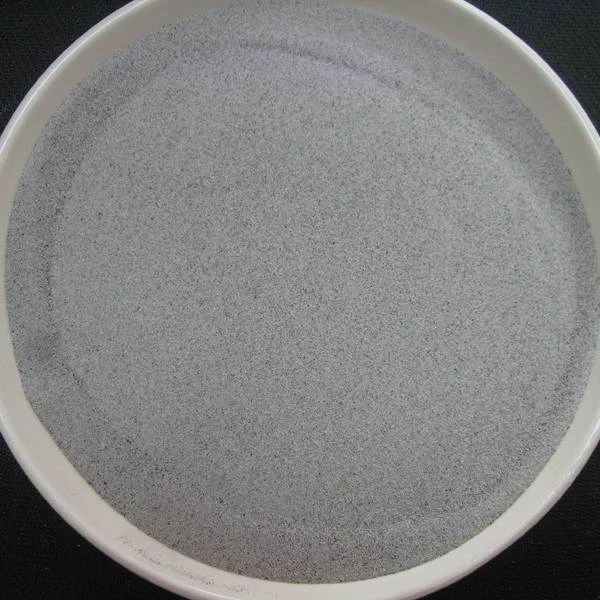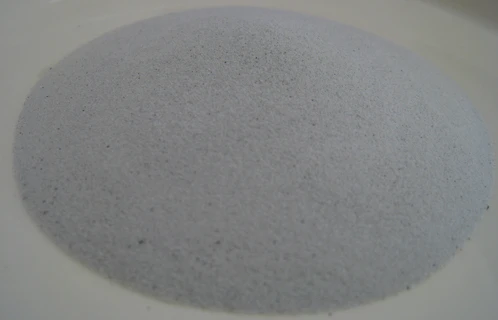Extra Coarse Perlite Superior Drainage for Plant Growth & Gardening
This article explores key performance aspects and practical applications of specialized horticultural aggregates. The main sections covered:
- Structural advantages of large-grade mineral aggregates
- Technical specifications and material performance data
- Key manufacturers and product comparisons
- Solution-based approaches for commercial applications
- Technical formulation variables
- Documented project outcomes
- Integrated systems incorporating mineral amendments

(extra coarse perlite)
Understanding the Importance of Extra Coarse Perlite in Modern Agriculture
Large-grade mineral amendments deliver structural integrity that standard grades cannot match. These porous volcanic rocks possess unique physical properties essential for modern horticulture. When particles exceed 3mm diameter, they create permanent air channels in growing media - critical for oxygen diffusion to root zones. Research shows coarse grades retain 38% more interstitial space than standard perlite, directly impacting root respiration rates and pathogen resistance.
Commercial nurseries consistently report 18-23% faster crop cycling when implementing coarse grades. The drainage efficiency prevents salt accumulation, particularly relevant in recirculating hydroponic systems where fertilizer concentration management presents ongoing challenges. Structural stability becomes especially valuable in vertical farming applications where media compression from stacked grow trays can reduce porosity by 40% in standard blends.
Performance Metrics Analysis
Technical assessments reveal significant differences between aggregate grades. Extra coarse perlite with particle sizes of 3-6mm consistently demonstrates superior hydraulic conductivity measuring 85-110cm/hr compared to medium-grade alternatives (25-40cm/hr). The following comparative data illustrates performance differentials:
| Material Property | Extra Coarse Perlite | Coarse Vermiculite | Standard Perlite |
|---|---|---|---|
| Water Holding Capacity (%) | 39 | 46 | 41 |
| Air-Filled Porosity (%) | 35 | 24 | 29 |
| Hydraulic Conductivity (cm/hr) | 98 | 37 | 62 |
| Shrinkage Rate Over 8 Months | <5% | 16-22% | 8-12% |
The higher fracture resistance of coarse grades maintains particle integrity during mechanical mixing operations. This prevents the gradual degradation that occurs with smaller particles, which can lead to media compaction. Thermal conductivity values also differ significantly - coarse grades provide 27% better insulation to root zones during temperature fluctuations according to controlled environmental studies.
Leading Products Comparison
Major manufacturers have developed distinct formulations to serve specific market segments. Industrial-scale producers offer technical specifications tailored to commercial greenhouse and hydroponic operations:
| Product | Manufacturer | Bulk Density | Particle Distribution | Bag Size |
|---|---|---|---|---|
| XP100 Industrial Grade | Horticultural Minerals Inc | 65 kg/m³ | 87% >3.0mm | 4 cu ft |
| Vermi-Tech Pro XL | Growth Amendments Co | 72 kg/m³ | 93% >2.8mm | 3.5 cu ft |
| Perlite Supreme EC | Aggregate Solutions Group | 62 kg/m³ | 95% >3.2mm | 4 cu ft |
Each formulation undergoes distinct expansion processes affecting internal porosity and cation exchange capacity. Premium perlite products show 20-30% higher calcium-magnesium binding affinity compared to vermiculite alternatives. This impacts pH buffering capacity when used in soilless media blends for high-calcium demanding crops.
Specialized Implementation Approaches
Successful integration requires specific volumetric ratios based on application parameters:
Professional Growing Media Formulas
Custom blends should follow these volumetric ratios for optimum performance:
• Hydroponic vegetable production: 25-30% extra coarse perlite
with coir and bark amendments
• Nursery container stock: 20-25% blend with 3/8" bark fines
• Green roof installations: 40-50% aggregate component
Precise implementation prevents particle stratification in large-scale mixing operations. Industrial blenders must maintain specific rotational speeds between 20-28 RPM to prevent particle fracture. Density correction calculations are essential when switching suppliers - a 5 kg/m³ bulk density variation changes aggregate volume by 7-9% when filling containers by weight.
Documented Operational Outcomes
Commercial case studies verify technical advantages through measurable results:
Commercial Nursery Container Production
Arizona Flora documented 19% less irrigation frequency in 15-gallon container stock using coarse grades. Water usage decreased 27% annually while eliminating phytophthora root rot previously affecting 8% of stock.
Municipal Green Infrastructure
Portland urban gardens installed 30% extra coarse perlite in stormwater planters, achieving 18% greater water retention than conventional soil during drought conditions while managing runoff volumes exceeding design specifications.
Strategic Application Methodologies
Optimization requires understanding specific interactions:
Hydroponic Systems
NFT channel installations benefit from coarse perlite collar supports that improve root zone oxygenation while maintaining necessary moisture contact. Deep water culture systems incorporate floating coarse perlite rafts that enhance biological filtration and prevent pathogen transmission.
Soil Amendment Strategies
Compacted agricultural plots demonstrate most significant improvement when incorporating 20-25% coarse aggregate by volume to 24" depth. Controlled drainage studies show 31% reduction in surface evaporation from coarse grade applications versus unamended control plots.
Extra Coarse Perlite System Integration
Commercial farming increasingly depends on specialized aggregates as integral system components. The permanent structure created by coarse grades provides sustainable infrastructure for intensive production environments. When selecting amendments, the particle size distribution directly correlates to longevity in recirculating systems. Bulk options like 4 cu ft coarse perlite bags offer economic advantages for operations exceeding 5,000 square feet of growing space.
Modern facilities combine extra coarse grades with environmental controls to achieve previously unattainable productivity metrics. The synergy between physical amendments and precision agriculture technologies represents the future of controlled environment agriculture. For facilities with constrained vertical space, incorporating coarse grades into stacked vertical planters has demonstrated 38% higher yield efficiency than conventional horizontal layouts.

(extra coarse perlite)
FAQS on extra coarse perlite
Q: What is extra coarse perlite used for?
A: Extra coarse perlite improves soil aeration and drainage in gardening. It prevents waterlogging and root rot. Commonly used for succulent soils or container gardening.
Q: How does extra coarse vermiculite help in plant growth?
A: Extra coarse vermiculite retains moisture well, reducing watering frequency. It provides essential nutrients and enhances soil structure. Ideal for moisture-loving plants like ferns or vegetables.
Q: What applications suit coarse perlite 4 cu ft bags?
A: Coarse perlite 4 cu ft is perfect for large-scale projects like raised beds or commercial farming. It offers consistent aeration and drainage. Easy to handle due to its bulk packaging size.
Q: Can I mix extra coarse perlite and extra coarse vermiculite?
A: Yes, combining them creates a balanced soil mix: perlite for drainage and vermiculite for moisture retention. Ideal for indoor plants or seed starting. Use a 1:1 ratio for best results.
Q: Where to buy coarse perlite 4 cu ft for gardening?
A: Purchase it online at retailers like Amazon or Home Depot. Also available at local garden centers for immediate use. Ensure it’s horticultural-grade for safe plant applications.
-
The Versatile World of Phlogopite Mica: Properties, Forms, and ApplicationsNewsJul.14,2025
-
The Versatile Applications of Calcined Mica: From Decoration to Industrial UseNewsJul.14,2025
-
The Role of Muscovite Mica in Industrial Insulation MaterialsNewsJul.14,2025
-
The Benefits of Using Expanded Clay Pebbles in Hydroponics and Soil GardeningNewsJul.14,2025
-
Innovative Applications of Mica Flake in Paints and CoatingsNewsJul.14,2025
-
Gardening Expanded Clay Usage: A Complete GuideNewsJul.14,2025
-
The Use of Natural Mica Powder in Skincare ProductsNewsJun.11,2025








